Key Takeaways
1. Traditional societies offer valuable lessons in child-rearing practices
Rather than sleeping in separate rooms, that current Western practice is a recent invention responsible for the struggles at putting kids to bed that torment modern Western parents.
Continuous physical contact. Traditional societies prioritize constant physical contact between infants and caregivers. Babies are carried in slings or on the caregiver's body, allowing for skin-to-skin contact and on-demand nursing. This practice contrasts sharply with Western norms of separate sleeping arrangements and scheduled feedings.
Multi-age playgroups. Unlike the age-segregated play common in Western societies, traditional societies often have children of various ages playing together. This arrangement allows younger children to learn from older ones and older children to develop caretaking skills. It also contributes to the development of social skills and emotional intelligence.
Autonomous exploration. Many traditional societies allow children more freedom to explore their environment and take risks. While this may seem dangerous by Western standards, it helps children develop self-reliance, risk assessment skills, and confidence. However, this approach is balanced with community vigilance and oversight.
- Benefits of traditional child-rearing practices:
- Enhanced emotional security
- Advanced social skills
- Greater self-confidence and autonomy
- Earlier development of practical skills
2. Constructive paranoia is essential for survival in traditional societies
If you do something that involves a very low probability of killing a person—say, just once in a thousand times that you do that something—but you do it a hundred times per year, then you are likely to die in about 10 years, instead of living out your expected lifespan of 40 years.
Constant risk assessment. In traditional societies, individuals are constantly alert to potential dangers, even those that might seem insignificant to outsiders. This heightened awareness stems from the cumulative risk of repeated low-probability events over a lifetime.
Practical application. Constructive paranoia manifests in various ways, such as:
- Avoiding sleeping under dead trees
- Carefully assessing unfamiliar individuals or situations
- Taking precautions when traveling through potentially hostile territories
Long-term survival strategy. While this level of caution might seem excessive to those from modern societies, it's a crucial adaptation for survival in environments where medical help is unavailable and resources are scarce. This mindset ensures that individuals remain vigilant and take necessary precautions to avoid potentially fatal accidents or conflicts.
3. The elderly play crucial roles in traditional societies, preserving knowledge and skills
Hence the minds of older people are the society's encyclopedias and libraries.
Knowledge repositories. In traditional societies without written records, elderly members serve as living archives of crucial information:
- Historical events and genealogies
- Medicinal knowledge and healing practices
- Survival skills and environmental wisdom
- Cultural traditions and rituals
Skill transmission. Older individuals often excel in crafts and specialized skills, passing their expertise to younger generations:
- Basket-making, pottery, and textile weaving
- Tool and weapon crafting
- Traditional farming and hunting techniques
Social and political roles. The elderly often hold positions of authority and respect:
- Mediating disputes and conflicts
- Providing counsel on important decisions
- Leading religious or spiritual ceremonies
This valuation of the elderly contrasts sharply with many modern societies, where older individuals may be marginalized or considered less useful due to rapid technological changes and shifting social norms.
4. Traditional warfare differs significantly from modern warfare in scale and impact
At least, one can conclude that the prompt responses of hunter-gatherer parents to infants crying do not consistently lead to children who end up conspicuously lacking in autonomy and self-reliance and other virtues.
Frequent but small-scale conflicts. Traditional warfare typically involves frequent skirmishes, raids, and ambushes between neighboring groups. These conflicts often result in few casualties per engagement but can have a high cumulative impact over time.
Total warfare mentality. Unlike modern limited warfare, traditional conflicts often aim to exterminate or drive out entire enemy populations, including women and children. This approach stems from the lack of centralized authority to enforce peace and the personal nature of conflicts.
Key differences from modern warfare:
- No professional armies or advanced weaponry
- Conflicts driven by personal vendettas and resource competition
- Higher proportional death tolls relative to population size
- Lack of clear distinction between combatants and civilians
Societal impact. Traditional warfare shapes many aspects of society:
- Settlement patterns and defensive architecture
- Social norms and child-rearing practices
- Alliances and trade relationships
Understanding these differences provides insight into the evolution of human conflict and the development of modern warfare practices.
5. Dispute resolution in traditional societies focuses on restoring relationships
The goal wasn't to extract payment for its own sake, nor to pretend to equalize accounts by A receiving X pigs from B after B has inflicted Y deaths on A. The goal was instead to reestablish peaceful relations between recent enemies, and to make it possible to live safely again at Goti Village.
Relationship-centric approach. Traditional dispute resolution prioritizes maintaining social harmony and restoring relationships between conflicting parties. This contrasts with modern legal systems that focus on determining guilt and punishment.
Compensation mechanisms. Many traditional societies use systems of compensation to resolve conflicts:
- Material goods (e.g., pigs, shells) exchanged to symbolize reconciliation
- Public ceremonies to acknowledge wrongdoing and express remorse
- Involvement of entire communities in the resolution process
Flexibility and context. Traditional dispute resolution is often more flexible than modern legal systems:
- Considers the broader social context of conflicts
- Adapts solutions to specific circumstances and relationships
- Aims for outcomes that benefit the community as a whole
Benefits of this approach:
- Promotes long-term social stability
- Reduces cycles of revenge and retaliation
- Encourages personal responsibility and empathy
However, this system can also have drawbacks, such as potential for abuse by powerful individuals or groups and lack of standardized justice.
6. Traditional societies demonstrate diverse approaches to danger and risk assessment
In the long run, that seeming paranoia is constructive: it's essential to surviving under traditional conditions.
Environmental adaptation. Different traditional societies have developed unique risk assessment strategies based on their specific environments:
- Arctic peoples: Extreme caution regarding ice conditions and weather
- Rainforest dwellers: Heightened awareness of poisonous plants and animals
- Desert nomads: Careful water management and navigation skills
Social risk management. Traditional societies often have elaborate systems for managing social risks:
- Complex kinship networks to ensure mutual support
- Rituals and taboos to regulate potentially dangerous behaviors
- Strict protocols for interacting with strangers or potential enemies
Generational knowledge transfer. Risk assessment skills are passed down through generations:
- Storytelling and oral traditions emphasizing caution
- Hands-on teaching of survival skills from an early age
- Gradual exposure of children to controlled risks
These diverse approaches to risk highlight the adaptability of human societies and the importance of cultural knowledge in survival. They also offer insights into how modern societies might better prepare for and respond to various types of risks and dangers.
7. The transition from traditional to modern societies brings both benefits and challenges
For the first time in human history, parents can now actually plan how many children to have, and, to a considerable extent, when to have them.
Demographic shifts. Modern societies experience:
- Lower infant mortality rates
- Increased life expectancy
- Declining birth rates
- Aging populations
Technological advancements. Modern societies benefit from:
- Improved healthcare and disease prevention
- Enhanced communication and information access
- Increased agricultural productivity
- More efficient transportation systems
Social and economic changes. The transition involves:
- Shift from extended to nuclear family structures
- Increased individual autonomy and personal choice
- Development of formal education systems
- Rise of specialized professions and complex economies
Challenges arising from this transition:
- Loss of traditional knowledge and skills
- Weakening of community ties and social support systems
- Environmental degradation and resource depletion
- New health issues related to sedentary lifestyles and processed foods
While modern societies have made significant gains in many areas, they also face unique challenges that traditional societies may have been better equipped to handle. Understanding this transition can help in addressing contemporary issues and preserving valuable aspects of traditional knowledge and practices.
Last updated:
FAQ
What's The World Until Yesterday about?
- Exploration of Traditional Societies: Jared Diamond examines the lifestyles, practices, and beliefs of traditional societies, particularly those that have existed for thousands of years.
- Comparative Analysis: The book contrasts traditional societies with modern state societies, highlighting differences in governance, social relationships, and conflict resolution.
- Insights from New Guinea: Much of the book is based on Diamond's experiences in New Guinea, providing a unique lens to understand broader human behaviors and societal norms.
Why should I read The World Until Yesterday?
- Understanding Human Nature: The book offers insights into human behavior by examining how traditional societies function, challenging readers to reflect on their own societal norms.
- Practical Lessons: Readers can gain practical advice on parenting, conflict resolution, and community living from the practices of traditional societies.
- Cultural Appreciation: It fosters a greater appreciation for cultural diversity and the wisdom embedded in traditional practices that have stood the test of time.
What are the key takeaways of The World Until Yesterday?
- Value of Traditional Practices: Many traditional practices, such as communal child-rearing and restorative justice, can offer valuable lessons for modern societies.
- Impact of Environment on Society: Diamond discusses how environmental factors shape societal structures and behaviors, helping modern societies address their own challenges.
- Cycles of Violence and Peace: The book explores how traditional societies manage conflict, emphasizing the importance of maintaining relationships.
What are the best quotes from The World Until Yesterday and what do they mean?
- “Traditional societies represent thousands of millennia-long natural experiments in organizing human lives.”: This underscores the idea that traditional societies provide insights into human organization and social structures.
- “The goal of traditional compensation is not to determine right or wrong, but instead to restore a relationship.”: Highlights the focus on emotional closure and community ties in traditional justice systems.
- “Life was better since the government had come because a man could now eat without looking over his shoulder.”: Reflects the benefits of state intervention in ending cycles of violence.
How does The World Until Yesterday compare traditional and modern societies?
- Social Relationships: Traditional societies emphasize long-lasting relationships and community ties, while modern societies often prioritize individualism.
- Conflict Resolution: Traditional societies often resolve conflicts through compensation and negotiation, whereas modern societies rely on legal systems.
- Cultural Practices: Practices like communal child-rearing and shared responsibilities in traditional societies offer insights into improving modern parenting and community dynamics.
What insights does The World Until Yesterday provide about child-rearing practices in traditional societies?
- Community Involvement: Child-rearing often involves the entire community, with multiple caregivers sharing responsibilities, fostering strong social bonds.
- Different Parenting Styles: Traditional societies may allow for more autonomy and less strict discipline, fostering independence and resilience in children.
- Cultural Context: The book highlights the importance of cultural context in shaping parenting norms, suggesting modern parents can benefit from adopting some traditional practices.
What is the concept of "constructive paranoia" in The World Until Yesterday?
- Awareness of Danger: "Constructive paranoia" refers to a heightened awareness of potential dangers, encouraging vigilance and preparedness.
- Coping Mechanisms: Traditional peoples develop coping mechanisms to deal with dangers, such as sharing information about threats.
- Contrast with Modern Attitudes: Diamond contrasts this mindset with modern attitudes, suggesting adopting aspects of constructive paranoia could benefit modern societies.
How does The World Until Yesterday address the treatment of the elderly in traditional societies?
- Cultural Variability: Treatment of the elderly varies widely, with some societies offering care and respect while others may neglect or abandon them.
- Role of Elders: Elders are often seen as valuable sources of wisdom and experience, contributing to community decision-making.
- Lessons for Modern Societies: Diamond suggests modern societies could learn from traditional practices that honor and integrate the elderly into community life.
What role does religion play in traditional societies according to The World Until Yesterday?
- Cultural Cohesion: Religion often serves to unify communities, providing shared beliefs and practices that strengthen social bonds.
- Explanation of the Unknown: Traditional religions help people make sense of the world, offering explanations for natural phenomena and life events.
- Moral Framework: Many religions provide guidelines for behavior, helping to regulate social interactions and maintain order within the community.
How does The World Until Yesterday address the concept of bilingualism?
- Bilingualism as a Norm: Traditional societies often raise children to be bilingual or multilingual, which has cognitive benefits.
- Cognitive Advantages: Studies show bilingual individuals have better executive function, aiding in problem-solving and adaptability.
- Encouragement for Parents: Diamond advocates for raising children bilingually, enriching their lives and providing lifelong benefits.
What are the health implications discussed in The World Until Yesterday?
- Non-communicable Diseases: Diamond explores the rise of diseases like diabetes and hypertension in modern societies, linking them to lifestyle changes.
- Salt and Sugar Intake: High consumption of salt and sugar contributes to health issues, contrasting with traditional diets.
- Lessons from Traditional Diets: Adopting aspects of traditional diets can help mitigate health risks, encouraging the incorporation of healthy foods.
What can modern societies learn from traditional societies according to The World Until Yesterday?
- Adopting Healthy Practices: Diamond encourages incorporating beneficial practices from traditional lifestyles, such as dietary habits and social structures.
- Valuing Social Connections: The book highlights the importance of maintaining strong social bonds and community support systems.
- Cultural Appreciation: Diamond advocates for a greater appreciation of cultural diversity and the wisdom embedded in traditional practices.
Review Summary
The World Until Yesterday receives mixed reviews. Many praise Diamond's insights into traditional societies and their relevance to modern life, particularly regarding child-rearing, elder care, and health. Readers appreciate his personal anecdotes from New Guinea and his ability to synthesize complex information. However, some find the book repetitive, overly long, and lacking clear focus. Critics argue that Diamond's perspective can be colonial at times. Despite these criticisms, most agree the book offers valuable comparisons between traditional and modern societies, even if the conclusions drawn are sometimes seen as underwhelming.
Similar Books
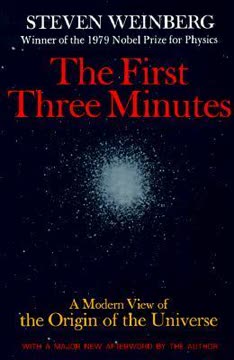

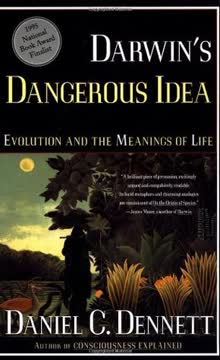
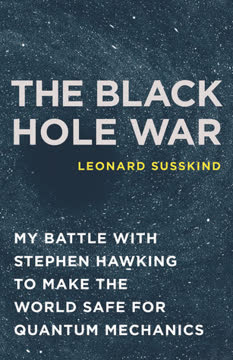
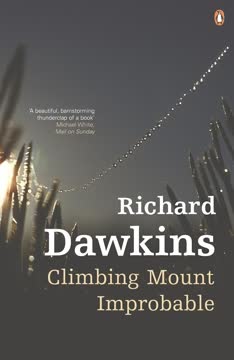
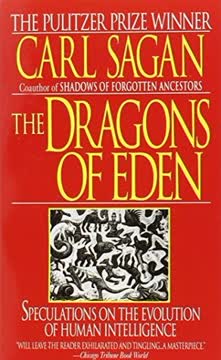



Download PDF
Download EPUB
.epub digital book format is ideal for reading ebooks on phones, tablets, and e-readers.









